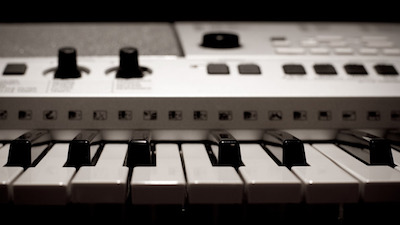What stops a lot of people from continuing with the piano? Bad habits.
Bad habits can make creating music a difficult task. And when the joy begins to fade, piano playing follows suit.
From early on in a beginning piano players routine, stuttering can be a problem. Stuttering is caused by stop and go practice in which a student stops playing when they reach a section they don’t play well, replaying it again and again when there is a mistake. If you make a mistake, always continue through to the end. Don’t stop and correct it. Instead, make a mental note of where the mistake was, and when you are through, go back and work on the troubled section. Stopping in the middle cuts out the rhythm of the tune. It stops your focus and concentration, putting it on the mistake rather than on the melody. It puts too much emphasis on the problem rather than the joy of the music.
Poor tone quality is another common problem. During practice, no one is listening so tone doesn’t matter. Tone can quickly degrade without having to correct it for those around them. And if they ignore it in practice, it’s more difficult to correct down the road. Good tone cannot be produced by a poor or untuned piano; the first step is to have a high quality piano in which to practice on. If they learn to practice with high quality sound, they will quickly recognize when a piano performance isn’t up to par. It’s also important to record proper piano tone from time to time, so that the player can get a good feel for problem areas, sound quality, and the difference between the two.
Still another bad habit is playing at the wrong speed. Music is created with a certain tempo in mind. The right speed is determined by many factors, including the difficulty of the piece, the condition of the piano, technical ability, what the audience is expecting, etc. If a person tries to play a piece that is too difficult for their ability, they may end up with many mistakes, or be timid and play it too slow for enjoyment. Perform a piece too quickly and it removes the performance factor of the music. The key is in practicing to perfection, and understanding your connection to the music. If you learn to think of presentation first, you’ll have a better performance overall.
The worst thing about bad playing habits is the time they take for correction. Nothing accelerates your learning curve more than developing good habits over bad. If you give yourself every advantage from the beginning, you’re more likely to enjoy the process every step of the way. Get the best equipment, ask for help, and have fun making music.

